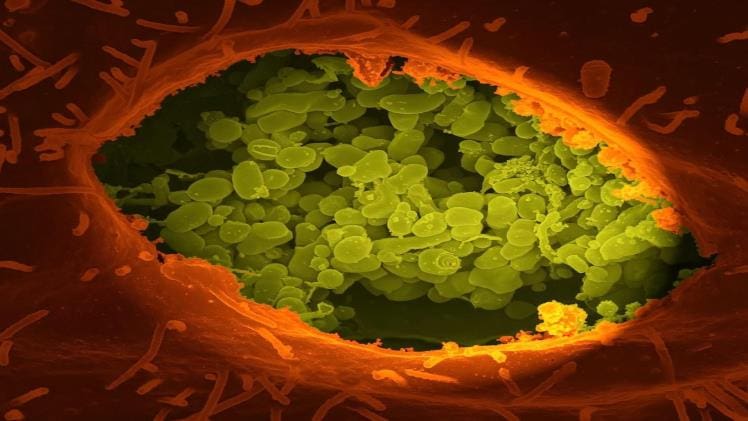Digestive health is paramount to our overall well-being. The intricate system that breaks down the foods we eat and absorbs the necessary nutrients not only keeps our body nourished but also impacts our mental health, immune system, and energy levels. However, many people, at some point in their lives, experience digestive disturbances. From bloating and gas to severe disorders, these issues can be bothersome and even debilitating. Fortunately, there are myriad ways to enhance our digestion and ensure it operates at its peak efficiency. By understanding and adopting these strategies, we can promote a harmonious digestive process and lead a healthier, happier life.
Understanding the Role of Food and Drink
One of the most straightforward ways to ensure optimal digestive health is to be mindful of what we consume. The food and drink that we intake play a crucial role in how our digestive system functions. For starters, drinking adequate water aids in softening stool and prevents constipation. Fiber-rich foods, such as whole grains, vegetables, and fruits, are excellent for promoting bowel regularity. Consuming fermented foods, like yogurt, kimchi, and sauerkraut, introduces beneficial probiotics into our gut, supporting a healthy microbial balance.
Incorporating the right kind of fats into our diet, especially omega-3 fatty acids found in fish and flaxseeds, can reduce inflammation and support digestion. It’s equally essential to be cautious about the foods that can be detrimental. Spicy foods, greasy items, and excessive caffeine or alcohol can irritate the digestive system in some individuals. It’s essential to recognize your body’s unique needs and adjust your diet accordingly.
Digestive Supplements
Our diet, regardless of how balanced, might sometimes fall short of providing all the necessary nutrients and aid for digestion. This is where supplements can step in to fill the gaps. Probiotic supplements, for instance, can help replenish the beneficial bacteria in our gut, especially if one has been on antibiotics or experienced a bout of digestive upset. Digestive enzymes can be taken to assist the body in breaking down specific components of food, such as lactose or fats.
It’s crucial, however, to approach the realm of supplements with caution. Not all supplements to help digestion are created equal, and their efficacy can vary. It’s always a good idea to consult with a healthcare professional before starting any new supplement regime. This is also the best time to discover the greens powder supplement because it’s one of the easiest and most cost-effective ways to complement your existing diet and boost your energy, digestion, skin and long-term health. They can guide you on which supplements are appropriate and ensure you’re not taking anything that might interact with medications or other supplements you’re already on.
Lifestyle Adjustments for Better Digestion
Beyond what we consume, how we live our daily lives plays a significant role in our digestive health. Regular physical activity, even something as simple as a daily walk, can stimulate the muscles in the digestive tract, aiding in the movement of food through our system. Managing stress is another vital aspect. Chronic stress can disrupt the balance of our gut flora and decrease blood flow to the digestive organs, impairing their function. Techniques like meditation, deep breathing exercises, and yoga can be incredibly beneficial in mitigating stress and, by extension, promoting better digestion.
Another often overlooked factor is the importance of a routine. Our bodies thrive on consistency. Eating meals around the same time every day and establishing a regular sleep schedule can significantly enhance our digestive processes.
The Role of Medical Interventions
For those who have chronic or severe digestive issues, it might be necessary to seek medical interventions. Several tests and procedures can diagnose and treat underlying conditions. For example, colonoscopies can detect and remove precancerous growths in the colon, while endoscopies can identify problems in the upper digestive tract.
Medical treatments can range from medications that address symptoms like acid reflux or slow motility to more invasive procedures for conditions like Crohn’s disease or ulcerative colitis. The key is to work closely with a gastroenterologist or other medical professionals who can provide guidance tailored to your specific needs.
The Interplay of Gut Microbiome and Digestion
Our gut is home to trillions of microorganisms, collectively known as the gut microbiome. These bacteria, yeasts, and viruses play a crucial role in our overall health, particularly our digestive health. The balance between beneficial and harmful microbes can significantly influence how efficiently our digestive system works.
A diverse and balanced gut microbiome aids in breaking down complex carbohydrates, producing essential vitamins, and protecting against harmful pathogens. Moreover, these microorganisms play a role in regulating our immune responses and even communicating with our brain via the gut-brain axis.
Factors such as diet, stress, antibiotics, and infections can disturb this delicate balance, leading to digestive issues. Incorporating foods rich in prebiotics, such as garlic, onions, and leeks, can provide essential nutrients for the beneficial bacteria, allowing them to thrive. Similarly, avoiding excessive sugar and processed foods, which tend to feed harmful bacteria, can maintain a healthy microbiome balance.
Understanding the Importance of Stomach Acidity

The stomach’s acidic environment, maintained by gastric juices, is a critical component of our digestive process. This acidity helps in breaking down proteins, killing harmful bacteria that enter with food, and aiding in the absorption of certain minerals.
However, an imbalance in stomach acidity can lead to issues like acid reflux or inefficient digestion. While many people believe they suffer from excessive stomach acid, low stomach acid can also be a concern. Symptoms of low stomach acid include bloating, heartburn, and nutrient deficiencies, as the body struggles to absorb minerals and vitamins.
If you suspect an imbalance in your stomach’s acidity, it’s essential to consult a healthcare professional. They might recommend tests or suggest dietary and lifestyle changes to address the issue.
Exploring the Connection Between Mental Health and Digestion
Recent research has illuminated the deep-seated connection between our gut and our brain. Termed the “gut-brain axis,” this bidirectional communication pathway means that our mental health can influence our digestive health and vice versa.
Conditions like anxiety and depression can manifest with digestive symptoms. Stress, in particular, can slow down or speed up the movement of food through the digestive tract, leading to constipation or diarrhea, respectively. On the flip side, chronic digestive disorders can take a toll on an individual’s mental well-being, leading to feelings of anxiety or depression.
Addressing mental health is, therefore, paramount in ensuring optimal digestion. Seeking therapy, engaging in regular physical activity, and even certain probiotic strains can potentially offer relief for both digestive and mental health issues.
Cultivating a Healthy Relationship with Food
Our mindset towards food can also impact our digestion. Developing a healthy relationship with food involves understanding our body’s cues and recognizing when we’re hungry and when we’re full. Mindful eating, where one pays full attention to the act of eating without distractions and savors each bite, can aid digestion. Taking the time to chew food thoroughly, being grateful for the nourishment it provides, and avoiding overeating can significantly enhance our digestive process.
Conclusion: Embracing a Holistic Approach to Digestion
Digestive health is a complex interplay of diet, lifestyle, mental well-being, and medical care when needed. To ensure optimal digestion, it’s crucial to consider all these facets and adopt a holistic approach. By mindfully selecting our foods, considering beneficial supplements, making the necessary lifestyle adjustments, seeking medical advice when needed, and fostering a healthy relationship with food, we can navigate the path to impeccable digestive health. Embracing these strategies not only enhances our physical well-being but also contributes to a more enriched and fulfilling life.

